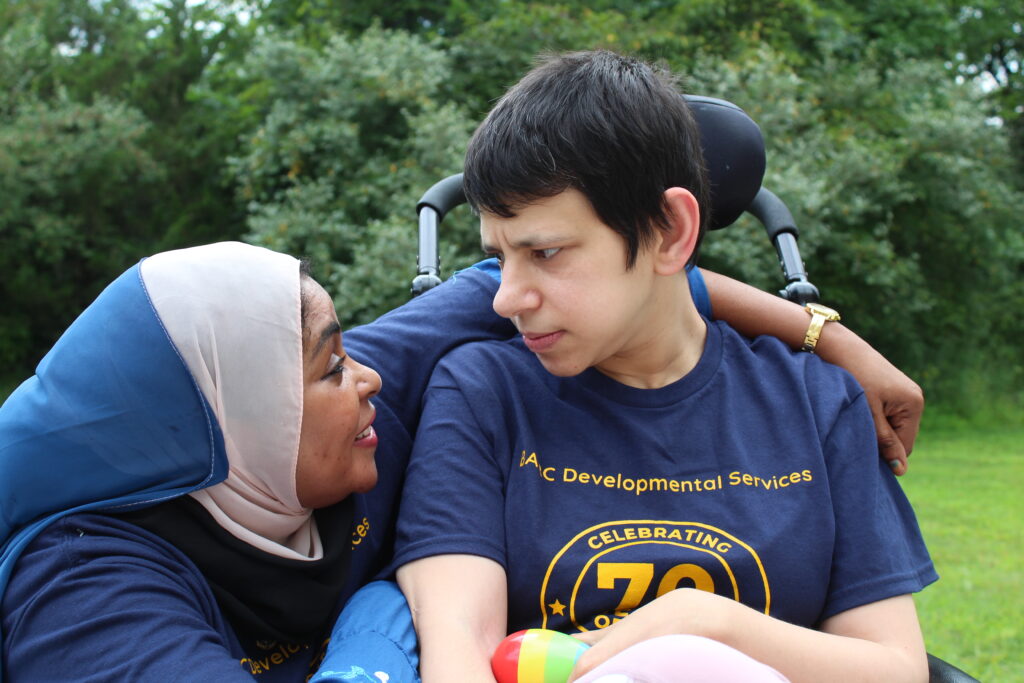For individuals with autism, intellectual disabilities, Down syndrome, fragile X syndrome, or other developmental delays, finding the right residential placement is a crucial decision that significantly impacts their quality of life. The right environment can provide stability, support, and a sense of belonging, while the wrong one can lead to frustration, isolation, and regression.
Why Good Residential Placement Matters
For individuals with developmental disabilities, a well-chosen residential placement offers more than just a place to live; it provides a foundation for growth, independence, and personal fulfillment. The challenges faced by individuals with autism, intellectual disabilities, and other developmental disorders require a tailored approach to care that ensures each person can thrive to their fullest potential.
A supportive residential environment is essential for promoting social interaction, developing life skills, and ensuring safety. It also provides relief and peace of mind to families, knowing that their loved ones are in a safe, caring, and professionally managed environment. For individuals with conditions such as Down syndrome or fragile X syndrome, where the need for consistent routine and specialized care is paramount, the importance of a good residential placement cannot be overstated.
Qualities to Look For in Residential Placement Programs
When considering residential placement for individuals with autism and intellectual disabilities, several key qualities should be prioritized to ensure the environment is conducive to their well-being and development:
Person-Centered Care
A residential program should be tailored to meet the unique needs of each individual. This means understanding their specific challenges, strengths, and preferences and developing a care plan that reflects these. Person-centered care fosters a sense of dignity and respect, allowing individuals to have a say in their daily routines and activities.
Highly Trained and Compassionate Staff
The quality of staff is arguably the most critical factor in residential placement. Caregivers should be not only well trained in handling the complexities of developmental disabilities but also genuinely compassionate and patient. This combination of skill and empathy ensures that residents receive both the technical and emotional support they need.
Structured Environment With Flexibility
A structured environment is vital for individuals with autism and developmental disabilities as it provides predictability and routine, which can reduce anxiety and behavioral issues. However, flexibility within this structure is also important, allowing residents to explore new activities and experiences at their own pace, which can aid in personal growth and skill development.
Access to Therapeutic and Educational Resources
A good residential placement should provide or facilitate access to therapeutic services, such as speech therapy, occupational therapy, and behavioral interventions. Educational opportunities should also be available to promote continuous learning and development. These resources help residents manage their conditions more effectively and achieve greater independence.
Safe and Inclusive Environment
Safety is a primary concern in residential placements, particularly for individuals who may have difficulty communicating or understanding dangers. The facility should be designed to minimize risks, with staff trained in crisis intervention. Moreover, the environment should be inclusive, promoting social interaction and a sense of community among residents.
Family Involvement and Communication
A strong partnership between the residential staff and the individual’s family is essential. Regular communication and involvement in care planning ensure that the family’s insights and concerns are considered. This collaboration also helps to maintain continuity of care and reinforce the individual’s connection with their family, which is vital for emotional well-being.
Opportunities for Socialization and Community Engagement
Social interaction is crucial for the mental health and happiness of individuals with developmental disabilities. A residential placement should offer opportunities for residents to engage with peers and participate in community activities. This not only enhances their social skills but also promotes a sense of belonging and purpose.
Commitment to Individual Progress and Independence
The ultimate goal of residential care should be to support each individual in achieving as much independence as possible. This involves setting realistic goals and continually working toward them, whether by improving communication skills, learning daily living tasks, or building social connections. A placement that is committed to the growth and progress of its residents fosters a positive and empowering atmosphere.
Find Quality Residential Services at BARC Developmental Services
For families seeking a high-quality residential placement for their loved ones with developmental disabilities, BARC Developmental Services offers a comprehensive program that embodies all the qualities of beneficial and supportive residential care. With a person-centered approach, a highly trained staff, and a commitment to fostering independence, our residential services provide a nurturing and safe environment where individuals with autism, intellectual disabilities, Down syndrome, and other developmental delays can thrive.
Our residential services are designed not only to meet the immediate needs of individuals but also to support their long-term growth and happiness. By focusing on creating a community of care, BARC ensures that each resident has the opportunity to live a fulfilling life with dignity and respect. Learn more about our residential services today!
Located in Bucks County, Pennsylvania, BARC Developmental Services assists and supports individuals with intellectual disabilities and autism. We equip them to reach their fullest potential, lead happy lives, and contribute to their community. With early intervention services, residential programs, and vocational initiatives, we serve hundreds of individuals and aim to help many more. Donate today to make impactful change in the lives of individuals with intellectual disabilities and autism!

